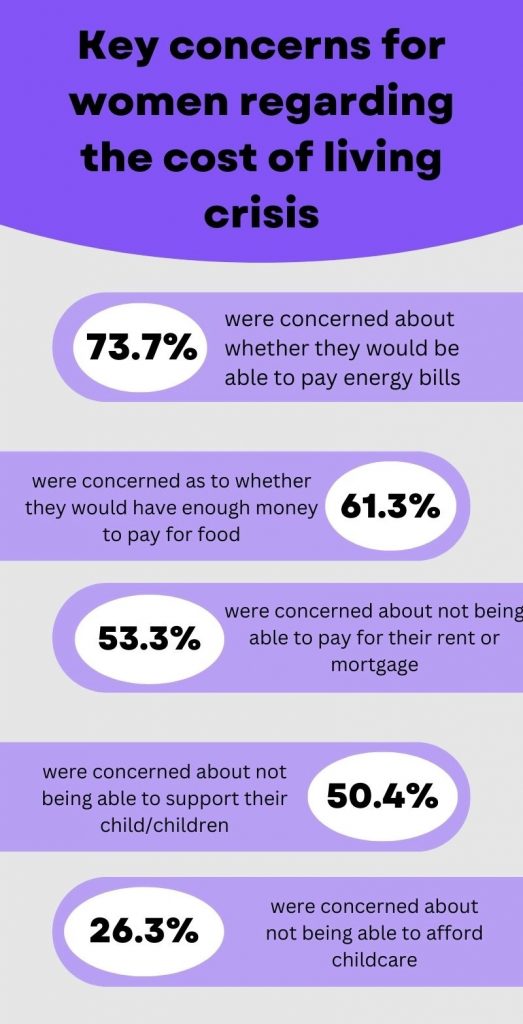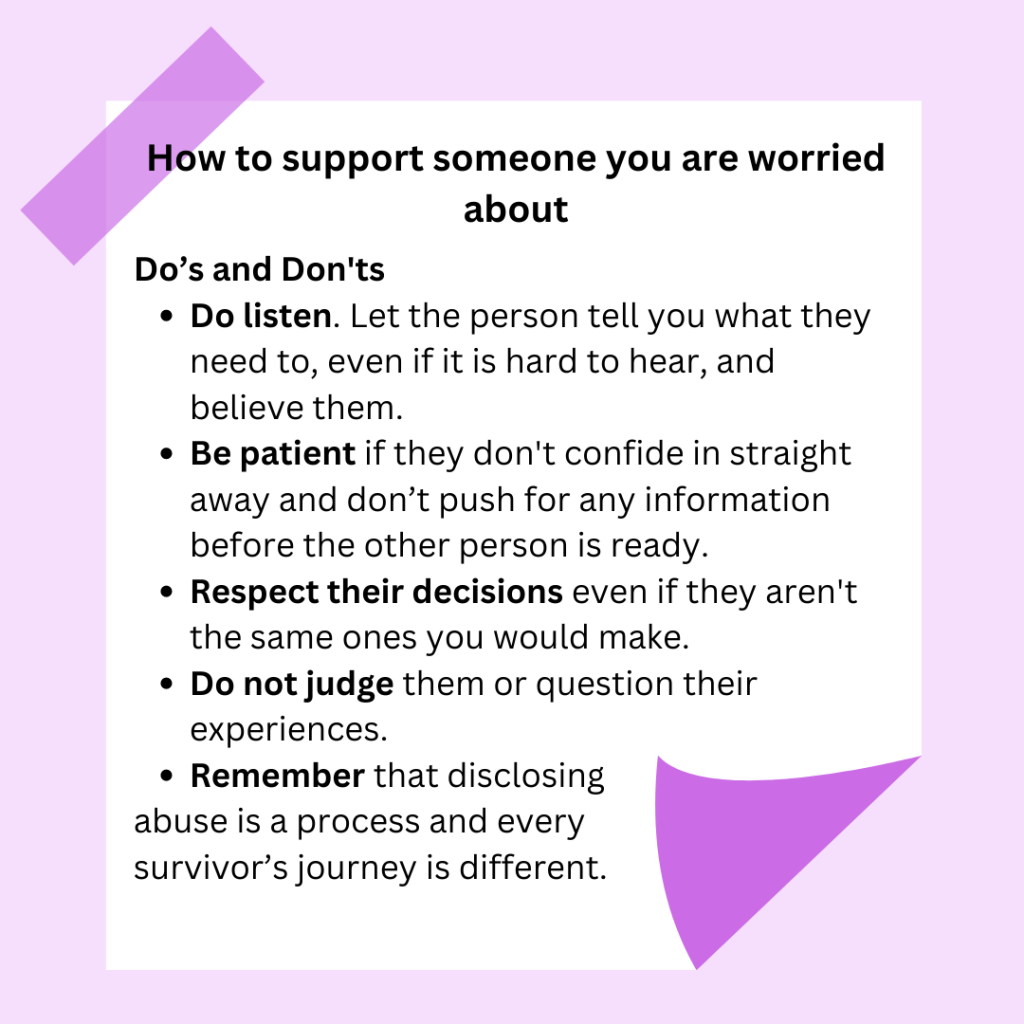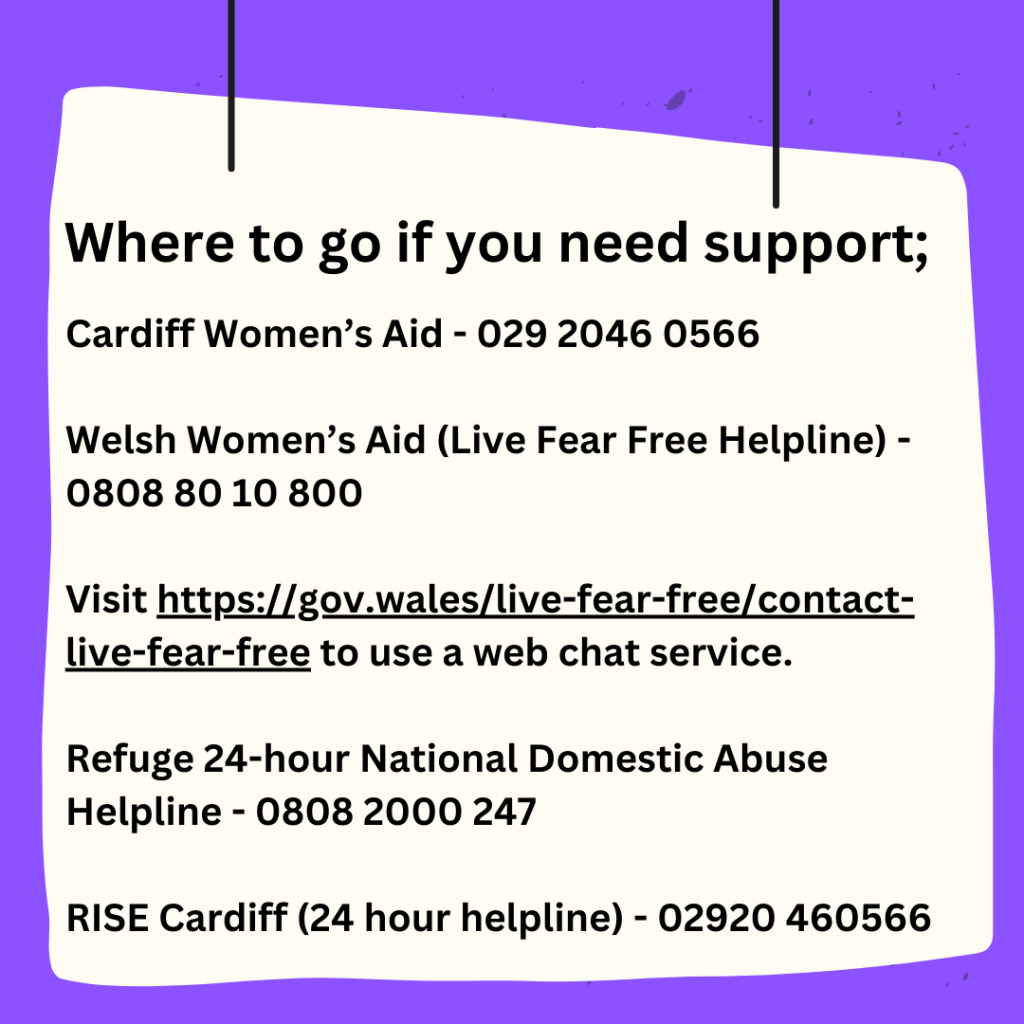Welsh Women’s Aid joins a coalition of women’s safety organisations that are concerned for women’s safety during the cost-of-living crisis

Women are more vulnerable to the negative impacts of the cost-of-living crisis, according to a recent report. This places women who are in unsafe relationships even higher at risk.
On 17 November 2022, Welsh Women’s Aid and multiple other women’s safety organisations from across the UK, formed a joint statement stating that the cost-of-living crisis is impacting women unequally, especially women who are impacted by abuse.
This statement calling on the government for urgent action has been signed by 80 organisations. These include End Violence Against Women, Rape Crisis England & Wales, and Respect.
The coalition of women’s organisations state that the current crisis is placing women at a greater risk of violence and abuse, which will have a devastating impact.
Calling on the British government for urgent action, Andrea Simon, director of the End Violence Against Women Coalition said many of these risks to women that are facing abuse could have been foreseen and therefore prevented. She added this situation is strikingly similar to the Covid-19 pandemic which left women in troubling situations.
During the pandemic the average call duration made to Welsh Women’s Aid doubled
During the pandemic the average call duration made to Welsh Women’s Aid doubled, and there was an 80% increase in crisis calls since March 2020. The reason for this was pointed towards the increased time spent at home. During the pandemic women were involuntarily having to spend more time stuck within their homes.
Many organisations fear a similar situation will unfold because of the cost-of-living crisis.
During this period pressures will be high in many people’s lives and homes, creating added strain on unhealthy relationships. As bills and prices rise, for some individuals this means less money to spend on socialising outside of their homes and away from their abusers.
“I have felt more isolated as I already cannot leave the home without permission. Not being able to afford activities means that I cannot leave at all,” said an anonymous victim in Women’s Aid’s recent report on the impact of the cost-of-living crisis on survivors of domestic abuse.
This high demand for services has continued following the pandemic. The Live Fear Free Helpline which is available for women experiencing violence has seen an increase already since last year.
The total number of contacts for the Live Fear Free Helpline in 2021/22 was 35,536, which is an 18% increase since 2020/21, where there was 30,063 contacts.
Financial Worries
The cost-of-living crisis has already had a negative impact on women’s safety. It has impacted women’s ability to relocate to safe accommodation and the price of legal support and advice has increased significantly.
As women’s incomes are squeezed, the choice between eating and heating becomes a devastating reality. According to The Bevan Foundation, 57% of women are cutting back on heating, and 39% are cutting back on food for themselves in order to feed their children.

This makes the idea of leaving an unhealthy relationship even harder to imagine.
Women’s Aid research discovered that almost 73% of women have financial links with their abuser which means they do not have their own financial freedom and are not financially stable enough to support themselves to leave their abusers.
An anonymous survivor of domestic abuse shared in a Women’s Aid case study said: “[The abuser] refused to pay for anything so I had to pay for the household myself and get into debt while he bought himself expensive things.”
The research also uncovered that financial implications of the cost-of-living crisis has prevented women from leaving their abusers.
Tomos Evans, who works for Chwarae Teg, a charity that focuses on gender equality in Wales, says that women are currently being affected by the cost-of-living crisis in multiple ways.
“The cost-of-living crisis is a pinch-point for women”, Evans says. The stresses and responsibility of childcare, managing budgets, and expectation to work longer hours to deal with the rise of costs is being placed on women, he explained.
Chwarae Teg is calling on the government for intervention to ensure that the people who need the support are getting it and will continue to.
They are asking Welsh government to develop their actions to support women through using equality mainstreaming tools to ensure that support is responsive to women’s needs specifically.
“Women’s needs need to be considered in the government’s plans. Gender isn’t always considered”, he said. Evans said any action to support women from the government would be welcomed. He added that accessible help was vitally important. Especially for women who are juggling many things such as working, child care and seeking help confidentially.
The Welsh Women’s Aid ‘cheques and balances’ report in 2021 explored the significant connection between poverty, gender inequality and Violence Against Women, Domestic Abuse and Sexual Violence experienced by women. It highlighted that financial situations and poverty was a key factor that left them trapped within abusive relationships. Delays in financial support and cuts to welfare grants increasingly restricted them from rebuilding their lives.
Moving Forward
The vulnerability of women in unsafe relationships and homes makes it increasingly difficult to collect data.
“The government doesn’t make decisions based on anecdotes”, said Evans when discussing why the correct support from the Welsh government hadn’t been put into action yet.
Data and statistics is what gains the government’s attention. Without data, a few survivors’ testimonies about how their situations worsened during the rise of costs isn’t enough for the Welsh government, said Evans.
Chwarae Teg are calling on the Welsh government to ensure that disaggregated cost of living data for Wales is regularly available to understand the impact on different groups.
Having this data available would highlight how women are disproportionately impacted by the current cost-of-living crisis, and how this impacts other aspects of their lives such as safety and domestic violence.
The reality for vulnerable women is only set to continue, according to Welsh Women’s Aid and the impact of the cost-of-living crisis is creating the ‘perfect storm’.


